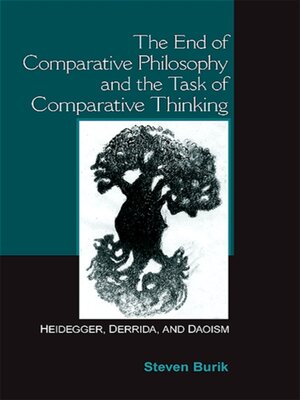The End of Comparative Philosophy and the Task of Comparative Thinking
ebook ∣ Heidegger, Derrida, and Daoism · SUNY Series in Chinese Philosophy and Culture
By Steven Burik

Sign up to save your library
With an OverDrive account, you can save your favorite libraries for at-a-glance information about availability. Find out more about OverDrive accounts.
Find this title in Libby, the library reading app by OverDrive.



Search for a digital library with this title
Title found at these libraries:
| Library Name | Distance |
|---|---|
| Loading... |
A work of and about comparative philosophy that stresses the importance of language in intercultural endeavors.
How do differences in language influence comparative philosophy? Although the Orientalism famously described by Edward Said is rare today, Steven Burik maintains that comparative philosophy often subtly privileges one tradition over another since certain conceptual schemes are so embedded in Western languages that it is difficult not to revert to them. Arguing for a new approach that acknowledges how theory and practice cannot be separated in comparative philosophical endeavors, Burik provides nonmetaphysical, deconstructionist readings of Heidegger and Derrida and uses these to give a new reading of classical Daoism. The ideas of language advanced therein can aid the project of comparative philosophy specifically, and philosophies generally, in trying to overcome ways of thinking that have dominated Western philosophy for twenty-five hundred years and still frustrate intercultural encounters.







